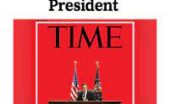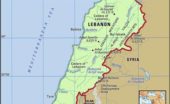Molly Minturn - My family is heartbroken to share that my father died in surgery on Monday, Feb. 10. It…
Wednesday Night #1546
Written by Diana Thebaud Nicholson // October 19, 2011 // Reports, Wednesday Nights, Wednesday Nights Meta, West Wing (WWWN) // Comments Off on Wednesday Night #1546
Canada’s $35 billion shipbuilding contract
The nature of government, more particularly, democratically elected government, is such that electors of a supportive (or non-supportive) region become suspicious that the source (wholly or partially) of motivation of the expenditure of large amounts of money might be as much political as logical. Thus Quebecers might see as a political move the award of contracts to shipyards on both coasts (but none to Québec) for $35 billion for the construction of new naval vessels Canada selects shipyards to modernize Navy. Wednesday Nighters, however, including those who generally oppose the political policies of the Conservative Party, see the move as rational and necessary. This is especially true considering the age of our current naval vessels, as well as the increased vulnerability of our northern coast, a fallout of global warming and geopolitical developments related to claims of Arctic lands rich in natural resources.
Occupy Wall Street/Occupy the World
Democratically elected governments at all levels appear to be losing the confidence of electors of all political stripes. Popular movements staging demonstrations and occupation of public space proclaim their cause to be the increasing gap between the earnings of the extremely wealthy and the impoverished, but a number of other not-so-relevant issues have been added to the list of grievances. The protestors have been brought together by social media, are apparently leaderless and could be vulnerable to takeover by an individual or group of individuals. The spread of the OWS to Canada has been met with varying degrees of approval, support and/or sympathy – even from Mark Carney
The world economy
With the business cycle moving more downward and sideways than up, with the probability that Greece will be unable to meet debt payments leaving Germany to pick up the slack, and with January 1 changes in U.S. fiscal policy believed to be moving that country in the wrong direction, the situation in North America remains unclear as well. Whereas it is a truism that it is impossible to use the past as a template to predict the future, it is difficult to be optimistic about the direction that the world will take in the new year.
The market
As for the stock market, the predicted major low (see Ron Meisels’ comment Wednesday Night #1545) occurred on October 4 and it has now started on an upward leg. The market gurus are cautiously positive, but will not predict a bull market until Europe implements solutions to its current financial situation.
The environment
Homo sapiens, perhaps a misnomer, has succeeded in encroaching on green spaces, squeezing out other creatures while consuming and/or destroying many species on the planet. In the process of destroying irreplaceable natural resources, whether by choice or necessity, humans have inhabited such dangerous areas as volcanoes and flood plains. Flooding of the Richelieu River valley was and is predictable, but does not appear to discourage people from building there. The same is true of the habitation of volcanoes and flood plains. Irreplaceable resources, including fossil fuels which have been built up over millennia, are consumed as if they were eternal. Perhaps the most thoughtless act is the overuse of one non-renewable resource, namely water. [ Editor’s Update: the World Resources Institute, a Washington think tank, reports that water use has been growing at more than twice the rate of population increase in the last century.] It is paradoxical that we attribute incredible value to gold, which has little or no intrinsic value, but treat water, the basic requisite for life, as if it had no value. In a sense, the use of water in the manufacture of petroleum in the tar sands signals Man’s evaluation of petroleum, the food of machinery and transportation, to be greater than that of his most important, transformable but not renewable, life support ingredient – water.
The Keystone pipeline
Discussion of the proposed Keystone Pipeline was not only passionate, but also highlighted the amount of conflicting information, interpretation of information, or simply misinformation surrounding the issue.
A decision is to be rendered shortly by President Obama, following recommendations of the U.S. Department of State on the proposal by Trans Canada Pipeline to build the Keystone Pipeline, destined to play an important role in linking a secure and growing supply of Canadian crude oil with the largest refining markets in the United States, and thus, according to proponents, significantly improving North American security supply. There is little doubt that the Keystone pipeline will be completed (part of it already exists), despite the varied rationale attributed to its need. Some believe its sole purpose is to assure an uninterrupted supply of petroleum to the United States, thus avoiding a recurrence of the 1976 incident in which Saudi Arabia cut the supply; others claim that it is destined only to the storage facility at Cushing, Oklahoma, enabling suppliers to control the flow, hence the price of the refined products. The execution of the project appears inevitable, although some Wednesday Nighters have expressed concern about its impact on the Ogallala Aquifer, one of the largest reserves of fresh water in the world, vulnerability in the event of natural disasters or, presumably, sabotage, as well as suggestions that it would feed refineries for transhipment of the refined product to China.
++++++++++++++++++++
The Prologue
Sunday was World Food Day. The Independent reminded us that They live in a world of plenty, but one in seven will go hungry today
Enough crops can be grown to feed the planet. But spiralling grain prices, stock market speculation, climate change and corrupt and failing governments have left almost a billion people facing starvation.
… according to a statement by the UN Secretary-General, in a world that can produce enough food to feed everyone, nearly a billion people will go hungry today. And that is one in seven of us. … Two-thirds of whom lived [in 2010] in just seven countries – Bangladesh, China, the Democratic Republic of Congo, Ethiopia, India, Indonesia and Pakistan.
This shameful situation alone is cause for revolution.
Which brings us to Occupy Wall Street (OWS) and the 99 percenters.
Paul Shrivastava asks: Are you following Occupy Wall Street/Occupy Montreal? Is this a fad or is there something more fundamental happening?
Our answer is that despite the lack of focus as described by the Globe & Mail, the media is moving from paws over nose to heads up and ears at alert, e.g.
Jim Stanford’s piece Occupy movement: It’s about time and of course the proactive Tyee has a refereshing view on Occupy Vancouver
Spiegel makes the point that Europe’s Politicians Side with the Protesters
Whatever you may think of Chris Hedges (much maligned by the odious Kevin O’Leary) A Movement Too Big to Fail is worth pondering. Also worth looking at is CHARTS: Here’s What The Wall Street Protesters Are So Angry About…
A footnote: did you realize that the OWS movement apparently started in Canada with Adbusters based in B.C.? From a single hashtag, a protest circled the world See more on social unrest
Meanwhile, the resolution of the European crisis limps along — Euro Leaders’ Crisis Campaign Bogs Down as Germany doused expectations of a breakthrough at this weekend’s summit and central bankers balked at extended bond purchases. and Investors bail out after Germany says no silver bullet for Europe’s debt mess. Our very own Minister Flaherty has declared that “This is the world’s most immediate and pressing problem. It threatens Europe, and it is threatening to bring the world to the verge of another recession.” And Emerging-market currencies tumbled on lower euro-zone resolution expectations. Regarding the BRICS, Jorge Castenada believes that several emerging economies are pursuing the wrong path to greater international influence – this is a longer-term question worthy of debate.
Confronted by the world economic crisis – or at least – regional economic crises that together create a world economic crisis, thanks to globalization, etc. the dismal science has acquired a new cachet. All sorts of people are reading and writing about arcane economics topics – and some may actually know whereof they speak. For instance, George Monbiot, one of our favorite writers on all things environmental is now referring to Sonnenschein-Mantel-Debreu Theory and the 41-line differential equation in a column on Professor Steve Keen’s book Debunking Economics; we have been given several references to Hayek, Keynes and Grand Pursuit: The Story of Economic Genius, by Sylvia Nasar; this year’s Nobel prize for economics has stimulated great interest in such topics as rational expectations hypothesis and vector auto-regression. As Paul Krugman points out: the prize isn’t a vindication of anyone or any particular point of view; it’s basically a signal saying, hey, if you haven’t been aware of this important line of work, now is a good time to read up on it. We do hope our Wednesday Night economists will do so — and explain it all to us.
With respect to Canada we have one good news and one bad news item. In the first category is A chance to fix our broken R&D model, the report of a panel of experts investigating ways Ottawa can get a lot more out of the $7-billion a year it spends on research and development outside government labs. The recommendations appear intelligent – now, will anything happen?
The bad news is that the Canadian Environmental network (RCEN) has been forced to close its doors when the Feds reneged on their commitment of funding. It is not a pretty story and in our view, it is an example of a highly politicized decision made without any regard for the greater good.
For those who are avidly – or not so avidly – following the pre-primary Republican race: ‘God created America to lead World’: Romney
Leading Republican presidential candidate Mitt Romney declared Friday that God created America to lead the world and accused President Barack Obama of deliberately weakening his nation. [Not sure whether ‘his’ refers to Romney’s, Obama’s or God’s – in the latter case, it should, of course, be ‘Her’s’]
While for those who prefer the race in France, one Wednesday Nighter goes out on a limb: “So Francois Hollande (with the help of his attractive former spouse Sigalene Royal – who endorsed his candidature last week) has defeated Martine Aubry and will be the Socialist candidate to run for President against Nicolas Sarkozy. Since neither of them has the least charisma I predict that Sarkozy – with the help of his own very attractive spouse Carla Bruni will be reelected.”
In the spirit of all politics is local, the rise of François Legault is something to watch.



